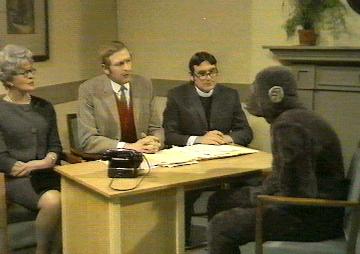Book of the Week:The Lost Art of Healing: Practicing Compassion in Medicine By: Bernard Lown
This book is part of our humanities collection and is a part of the curriculum for the first year medical students. I decided to read because it looked quite interesting. I'm glad I picked it up. I'm not a doctor nor a med student yet the book still makes an incredible point everyone needs to realize.
Dr. Lown, a cardiologist and professor emeritus at Harvard Medical School, begins the book by describing his experience as a young doctor struggling with the heavy workload of hospital rounds and the arrogance he emitted. He credits his mentor and role model, Dr. Samuel A. Levine with instilling in him the important skills of being a good human and doctor. He has written each chapter with interesting case studies/experiences drawn from his 45 years of practice. Dr Lown has been a life long advocate of using a more humane approach towards the management of patients.
He emphasizes that too many well-trained, well-credentialed doctors fail to take a careful patient history, rather they rely on technology and/or excessively prescribe drugs that often result in death or disability. Doctors substituting technology for taking time with the patient are shifting their medical focus from healing the patient to curing the disease.
This shift has had terrible impacts. It is clinical wisdom that enables a doctor to comprehend essential medical problems of the patient. He points out that a good doctor will take a good patient history and posses the ever vital skill of good listening and observation. Spending time, even a few extra minutes to really listen to their patients can have a life saving impact. He urges doctors to desist from using intimidating language and to pay attention to the emotional stresses in patients' lives. Keeping an open mind toward alternative medicine, Lown describes his partially successful treatment in China with acupuncture for his severe back pain.
It was an inspiring read. A reminder to all medical students that knowledge and academic grades are merely one part of their learning experience. Understanding human qualities such as empathy, compassion and the human condition must be reinforced and developed in conjunction with the scientific knowledge of their studies and training.
Dr. Lown, a cardiologist and professor emeritus at Harvard Medical School, begins the book by describing his experience as a young doctor struggling with the heavy workload of hospital rounds and the arrogance he emitted. He credits his mentor and role model, Dr. Samuel A. Levine with instilling in him the important skills of being a good human and doctor. He has written each chapter with interesting case studies/experiences drawn from his 45 years of practice. Dr Lown has been a life long advocate of using a more humane approach towards the management of patients.
He emphasizes that too many well-trained, well-credentialed doctors fail to take a careful patient history, rather they rely on technology and/or excessively prescribe drugs that often result in death or disability. Doctors substituting technology for taking time with the patient are shifting their medical focus from healing the patient to curing the disease.
This shift has had terrible impacts. It is clinical wisdom that enables a doctor to comprehend essential medical problems of the patient. He points out that a good doctor will take a good patient history and posses the ever vital skill of good listening and observation. Spending time, even a few extra minutes to really listen to their patients can have a life saving impact. He urges doctors to desist from using intimidating language and to pay attention to the emotional stresses in patients' lives. Keeping an open mind toward alternative medicine, Lown describes his partially successful treatment in China with acupuncture for his severe back pain.
It was an inspiring read. A reminder to all medical students that knowledge and academic grades are merely one part of their learning experience. Understanding human qualities such as empathy, compassion and the human condition must be reinforced and developed in conjunction with the scientific knowledge of their studies and training.

